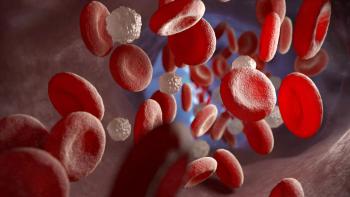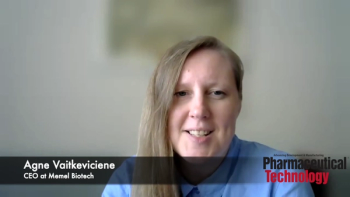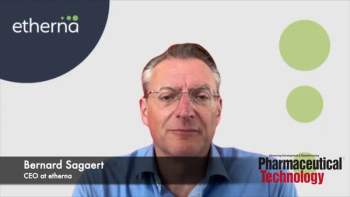
Enamine’s library of 5400 TPD-related linkers, and 13,000 more linker molecules, is now being integrated into Cresset’s Spark tool for library searching.

Enamine’s library of 5400 TPD-related linkers, and 13,000 more linker molecules, is now being integrated into Cresset’s Spark tool for library searching.

With this acquisition, AbbVie gains Cerevel’s clinical-stage assets that complement AbbVie's emerging neuroscience pipeline as well as branded products for treating psychiatric disorders, migraine, and Parkinson's disease.

The new biotech company will use the Series A financing to advance the development of enhanced biologics to treat solid tumors and inflammatory and immunology diseases.

STADA and Alvotech have launched Uzpruvo, the first approved biosimilar to Stelara (ustekinumab), in the European market, marking the second biosimilar brought to market by this partnership.

The questions come as FDA is revisiting best practices for advancing the development of new biosimilar products under the terms of its updated Biosimilars Action Plan.

BeiGene has invested $800 million into a new biologics manufacturing facility in Hopewell, NJ, which also houses its clinical R&D capabilities.

Giroctocogene fitelparvovec is designed to allow patients to produce FVIII on their own for a time after a single infusion, an alternative to routine IV injections.

GSK’s submission is supported by Phase III trials showing significant progression-free survival benefit and positive overall survival trends using Blenrep combinations compared to standard care.

The acquisition adds a Phase III therapeutic peptide candidate to AstraZeneca’s late-stage pipeline for rare diseases.

The acquisition of EyeBio adds a late-phase antibody drug candidate for diabetic macular edema and neovascular age-related macular degeneration to Merck’s pipeline.

The acquisition adds NM26, a Phase II-ready bispecific antibody for treating atopic dermatitis, to Johnson & Johnson’s immune-mediated and inflammatory disease portfolio.

Through a multi-year collaboration, Pfizer and Evotec aim to conduct early discovery research for therapeutics against metabolic and infectious diseases.

Roche voluntarily recalled Susvimo’s ocular implant, insertion tool, and initial fill kit when test results did not satisfy company standards.

Other indications for which the Sanofi treatment has been approved include atopic dermatitis, asthma, and chronic rhinosinusitis.

The companies have restructured their existing collaboration into a licensing agreement that invests in mRNA development.

The company is referring to its search for innovative approaches as crowdsourcing and will award at least one cash prize.

EMA has accepted GSK’s application seeking treatment with Jemperli (dostarlimab) plus chemotherapy for all adult patients with primary advanced or recurrent endometrial cancer.

The typical cycle of ceasing and then reinitiating fremanezumab treatments may actually result in increased monthly migraine days, the study said.

The Celsius Therapeutics acquisition will add CEL383, a potential first-in-class anti-TREM1 antibody for IBD, to AbbVie’s portfolio.

With the Proteologix acquisition, Johnson & Johnson gains two bispecific antibody early phase assets for immune-mediated diseases.

Novo Nordisk plans to invest $4.1 billion in a second fill/finish manufacturing facility in Clayton, N.C., boosting its current 2024 investments into production to $6.8 billion.

Fruzaqla was previously approved for use in patients with metastatic colorectal cancer in the US in November 2023.

FDA has granted expanded approval to Sarepta Therapeutics for Elevidys to treat DMD in non-ambulatory patients, in addition to ambulatory patients.

Immunology company argenx gets its third FDA-approved indication for VYVGART Hytrulo for treating chronic inflammatory demyelinating polyneuropathy.

The transaction, announced June 20, follows Bora’s purchase of Minnesota-based Upsher-Smith Laboratories earlier in 2024.

Imfinzi (durvalumab) combined with chemotherapy decreased the risk of disease progression or death by 58% in a 700-patient trial.

The collaboration and licensing agreement will focus on the discovery and development of RNA exon editing therapeutics.

Yimmugo, which was introduced in Europe at the end of 2022, could be on the market in the US within months.

Pharm Tech Group looks at the challenges surrounding the development and manufacture of ATMPs in more detail with Agne Vaitkeviciene, CEO of Memel Biotech.

Pharm Tech Group sits down with Bernard Sagaert, CEO of etherna, to examine the role of mRNA in the treatment of autoimmune diseases.